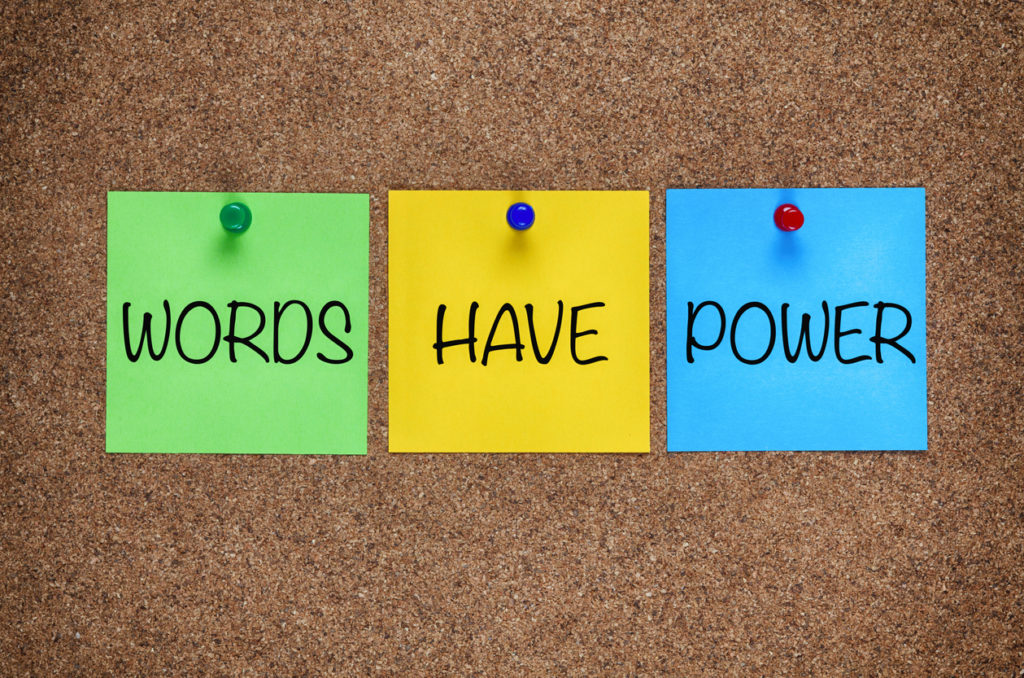How you speak determines how you will be heard. Get out of your own head and think about how your words will land on the ears of your audience, because how you intend to be heard is irrelevant. How you are actually heard determines how you will be taken by the listener.
 Stress impacts our lives. We know this. It not only lowers productivity, but it also raises health problems. If we’re going to help employees manage this minefield of the mind, we need to think about how we can best communicate it to them.
Stress impacts our lives. We know this. It not only lowers productivity, but it also raises health problems. If we’re going to help employees manage this minefield of the mind, we need to think about how we can best communicate it to them.
For example, it’s common to hear how events are ‘stressful’ — driving is stressful, or public speaking is stressful, or job evaluations are stressful. But this is totally misleading. And how we talk about it happens to matter.
Yes, it’s true that driving, job evals, and public speaking may create stress in a person. But some people go through the very same events and don’t have a stress response. Logically, if the very same event can spike a stress response in one person but not in another, that means that the job eval, public speaking, or crazy driver isn’t creating stress. Sorry.
So if it’s not those things, what is it?
Where The Stress Response Actually Comes From
All those events we call ‘stressful’ are things that we witness and react to. If we react negatively, they create a biochemical cascade that tumbles into adrenaline, insulin release, the cortisol hormone, and the shift of your body into a more anxious state. If we do not react negatively to those events, the biochemical brouhaha doesn’t happen.
So the bottom line is that all those events we say cause stress in our lives are totally agnostic. Neither here nor there. What causes stress in our lives is our body’s reaction to that event, not public speaking, driving, or even the agony of trying to get your new phone to just work without the aid of tech support.
Is This All Just Semantics?
 Not at all. Because when someone hears that they need to manage stress, they think they need to manage the crazy in their life, have children who actually listen, drivers who know how to drive, or a schedule that isn’t packed like a sardine can from morning to night every day. This communicates that problem is that driver over there, that person who just can’t figure out how to work the ATM in front of you, or having to get up in front of a group and have anything intelligent spill out.
Not at all. Because when someone hears that they need to manage stress, they think they need to manage the crazy in their life, have children who actually listen, drivers who know how to drive, or a schedule that isn’t packed like a sardine can from morning to night every day. This communicates that problem is that driver over there, that person who just can’t figure out how to work the ATM in front of you, or having to get up in front of a group and have anything intelligent spill out.
When you think stress is coming from those events, you feel powerless to address it. That’s the problem.
A more empowering stance is to start from the reality of what actually happens in your body. Outside events are not the problem. The problem comes when they get inside you to trigger your internal biochemistry to create the stress response. Once we understand this, we can better control whether they become a problem or not. With practice, you can keep outside events on the outside and prevent them from getting on the inside of you!
How We SHOULD Speak About Stress
 Speak about stress as a response. And it’s a response we have control over. Communicate it in this way, and the listener becomes empowered to manage stress better because they finally have a measure of control. They may not be able to corral the carnival of crazy parading through their life every day, but they can control how they respond to it.
Speak about stress as a response. And it’s a response we have control over. Communicate it in this way, and the listener becomes empowered to manage stress better because they finally have a measure of control. They may not be able to corral the carnival of crazy parading through their life every day, but they can control how they respond to it.
Manage the response to the stress triggers. Do this by first identifying what they are. Then, once you know them, practice what you need to prevent them from getting to you. Then they can manage stress better, and move the needle in a positive direction.
Words do matter, and need to be actionable to be effective. Create the path for individuals to realize the impact they can have on their own lives. The solution is within us.



